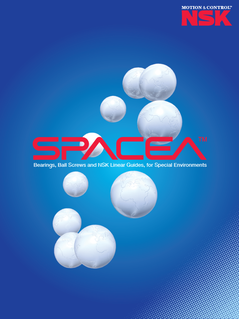Non-Magnetic Bearings
Overview

Nonmagnetic bearings offer higher rigidity and greater resistance to corrosion than conventional stainless steel or beryllium-copper alloys.
Product List
FAQs
Catalogs
Search our full listing of catalogs for more details.
2D/3D CAD Data
Download 2D & 3D CAD model files and spec. sheets for NSK products through PARTcommunity.
This free service is provided by CADENAS GmbH.



